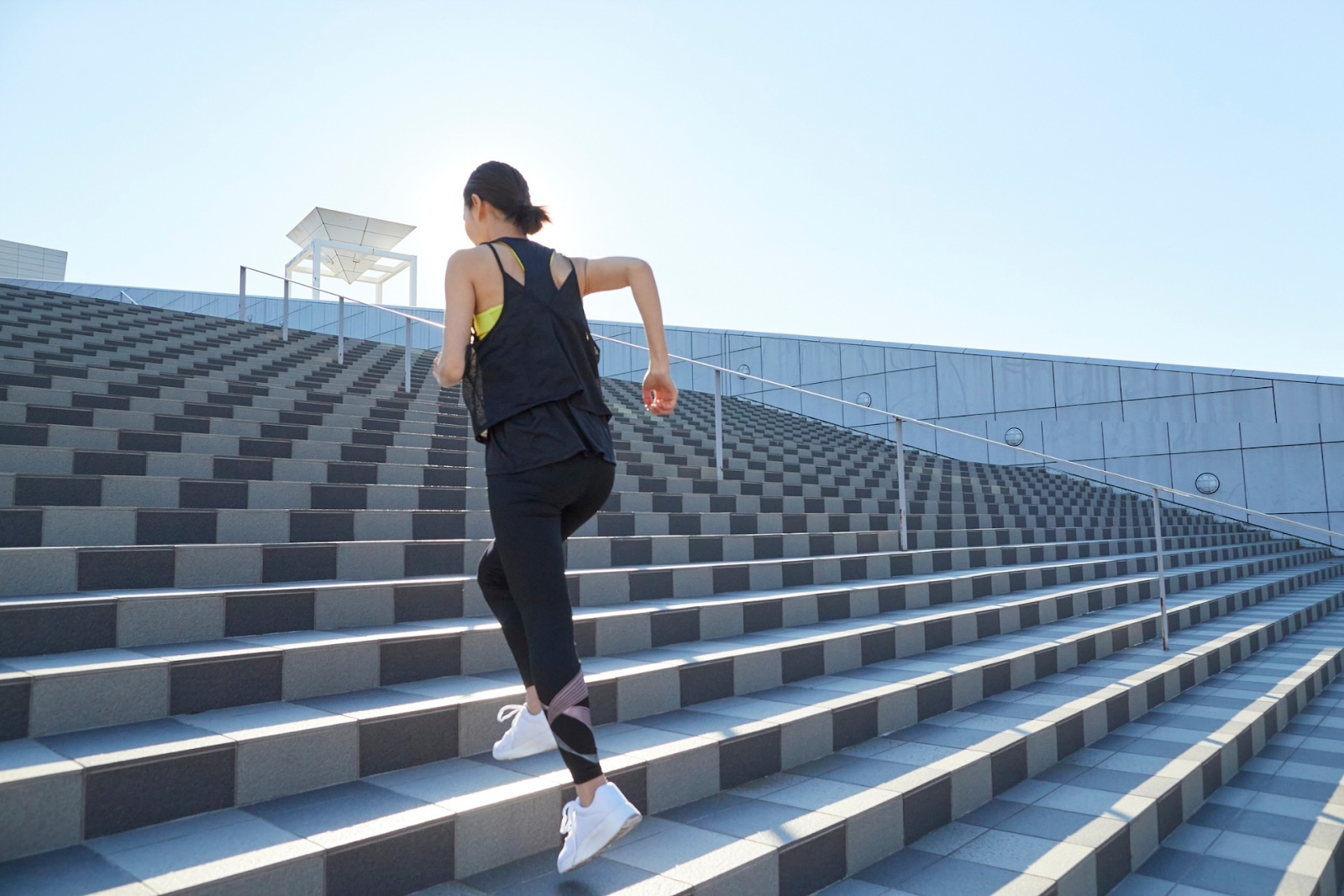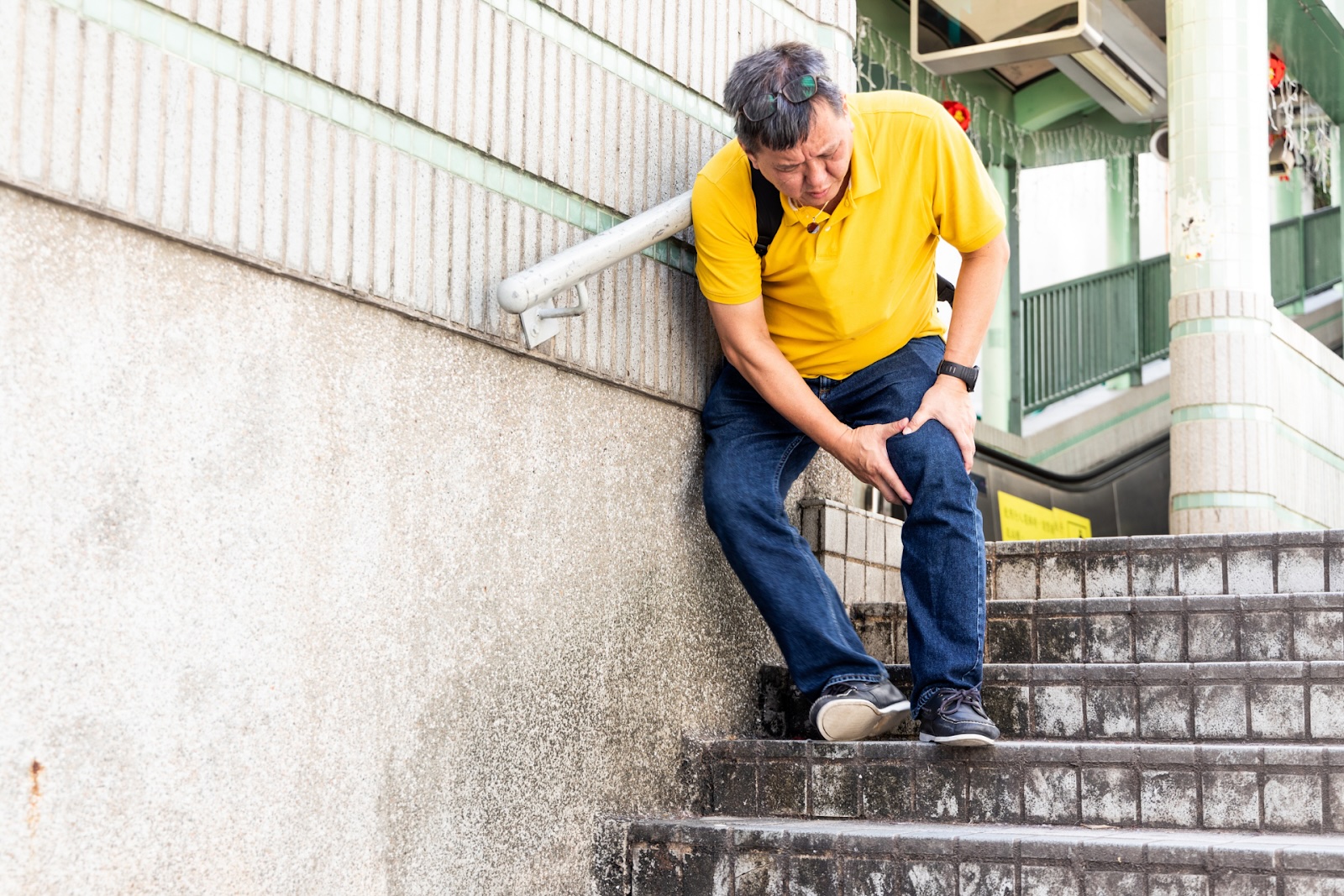Climbing stairs is a simple activity most people take for granted, until it becomes a challenge. If you find yourself struggling to ascend a flight of stairs, feeling unusually breathless, or experiencing pain and weakness, your body might be signaling an underlying health issue. Understanding these signs is crucial for early detection and effective management of potential problems.
In this article, we will explore the common reasons why stair climbing might be difficult, what your symptoms could indicate, and how modern healthcare technologies like AI-powered telehealth services can help you get timely, personalized medical advice.
 Why Is Climbing Stairs Suddenly Difficult?
Why Is Climbing Stairs Suddenly Difficult?
Difficulty climbing stairs can stem from a variety of causes, ranging from temporary fatigue to serious medical conditions. Recognizing the nature and severity of your symptoms can guide you toward the right care.
Muscle Weakness and Deconditioning
One of the most common reasons for struggling with stairs is muscle weakness, particularly in the legs and core. This can happen due to a sedentary lifestyle, aging, or recovery from illness. When muscles are not regularly exercised, they lose strength and endurance, making activities like stair climbing more taxing.
Deconditioning can also result from prolonged bed rest or hospitalization. If you’ve recently been less active, your body might need time and gradual exercise to rebuild strength. Engaging in low-impact activities, such as walking or swimming, can help re-establish muscle tone and improve overall fitness levels. Additionally, incorporating resistance training into your routine can specifically target the muscles used for climbing stairs, enhancing both strength and endurance over time.
Cardiovascular and Respiratory Issues
Shortness of breath or chest discomfort when climbing stairs could indicate heart or lung problems. Conditions such as heart failure, coronary artery disease, or chronic obstructive pulmonary disease (COPD) reduce your body’s ability to deliver oxygen efficiently during exertion.
For example, heart failure can cause fluid buildup in the lungs, making breathing difficult during physical activity. Similarly, COPD limits airflow and oxygen exchange, leading to fatigue and breathlessness even with mild exertion. It's essential to monitor these symptoms closely, as they may require medical evaluation and intervention. Lifestyle changes, including adopting a heart-healthy diet, quitting smoking, and participating in pulmonary rehabilitation, can significantly improve cardiovascular and respiratory health, ultimately making stair climbing easier.
Joint and Bone Problems
Arthritis, osteoporosis, or previous injuries can cause pain and stiffness in the knees, hips, or ankles, making stair climbing painful or difficult. Osteoarthritis, the most common form of arthritis, results from wear and tear of cartilage, causing joint pain and reduced mobility.
Bone density loss in osteoporosis increases fracture risk, and even minor stress on bones during stair climbing can cause discomfort or injury. To mitigate these risks, maintaining a healthy weight can reduce stress on the joints, while engaging in flexibility and strengthening exercises can enhance joint stability. Additionally, using supportive footwear and considering assistive devices, like handrails or stair lifts, can provide extra safety and support when navigating stairs.
Neurological Conditions
Neurological disorders such as Parkinson’s disease, multiple sclerosis, or peripheral neuropathy can impair coordination, balance, and muscle control. These issues may manifest as difficulty climbing stairs, frequent tripping, or a feeling of weakness.
Peripheral neuropathy, often caused by diabetes or vitamin deficiencies, affects nerve function in the legs and feet, leading to numbness, tingling, or muscle weakness. Engaging in physical therapy can be particularly beneficial for individuals with neurological conditions, as tailored exercises can improve balance and coordination. Moreover, staying vigilant about managing underlying conditions, such as maintaining stable blood sugar levels in diabetes, can help mitigate some of the symptoms associated with these disorders, making stair climbing a less daunting task.
What Your Symptoms Might Mean
Paying attention to specific symptoms alongside stair-climbing difficulty can provide clues about what your body is trying to tell you. Here are some common signs and their possible interpretations.
Shortness of Breath and Fatigue
If you become breathless quickly or feel unusually tired after climbing a few steps, it could indicate cardiovascular or pulmonary issues. Sometimes, even anemia or thyroid problems can cause these symptoms.
It’s important to note whether the breathlessness is accompanied by chest pain, dizziness, or swelling in the legs, as these could be signs of more serious conditions requiring urgent evaluation. Additionally, chronic shortness of breath may point to conditions such as chronic obstructive pulmonary disease (COPD) or asthma, which can significantly impact your quality of life if left untreated. Monitoring your symptoms over time and discussing them with a healthcare provider can help in formulating a comprehensive management plan.
Joint Pain and Swelling
Pain, stiffness, or swelling in your knees, hips, or ankles during or after stair climbing often points toward arthritis or joint inflammation. If the pain worsens with activity and improves with rest, it’s a classic sign of osteoarthritis.
In some cases, joint pain may be due to injury or overuse, especially if you’ve recently increased physical activity or experienced trauma. It’s also worth considering that conditions like rheumatoid arthritis or gout can manifest with similar symptoms but may require different treatment approaches. Engaging in low-impact exercises, maintaining a healthy weight, and utilizing physical therapy can help alleviate symptoms and improve joint function over time.
Muscle Weakness or Numbness
Feeling weak or numb in your legs or feet while climbing stairs could suggest nerve damage or neurological conditions. This is particularly concerning if accompanied by balance problems or frequent falls.
Such symptoms warrant a thorough neurological evaluation to identify the underlying cause and initiate appropriate treatment. Conditions such as peripheral neuropathy, which can result from diabetes or vitamin deficiencies, may lead to these sensations and require lifestyle modifications and possibly medication. Early intervention can play a crucial role in preventing further complications and improving mobility.
Sudden Onset of Difficulty
Sudden difficulty climbing stairs, especially if accompanied by chest pain, severe shortness of breath, dizziness, or fainting, requires immediate medical attention. These could be signs of a heart attack, pulmonary embolism, or stroke.
Recognizing these symptoms early is vital, as prompt medical intervention can significantly affect outcomes. It’s also essential to be aware of other risk factors such as family history, smoking, and high blood pressure, which can increase the likelihood of these acute events. Keeping a close watch on your body’s signals and seeking help when necessary can be lifesaving.
When to Seek Medical Advice
Recognizing when to consult a healthcare professional is vital. If stair climbing difficulty is persistent, worsening, or accompanied by alarming symptoms, don’t delay seeking care.
Modern telehealth platforms like Doctronic.ai offer a convenient and affordable way to get expert medical advice from the comfort of your home. Doctronic’s AI-powered doctor can provide quick, personalized assessments based on the latest medical research, helping you understand your symptoms and decide on next steps.
Benefits of Using AI-Powered Telehealth Services
Doctronic.ai revolutionizes healthcare by offering free AI doctor visits that synthesize peer-reviewed medical knowledge instantly. Whether you have a question about your symptoms or need a second opinion, Doctronic’s AI doctor remembers your health history and provides tailored advice 24/7.
For more comprehensive care, Doctronic also offers affordable telehealth video visits with licensed doctors across all 50 states, making quality healthcare accessible anytime you need it.
What to Prepare Before Your Telehealth Visit
To make the most of your telehealth appointment, prepare a list of symptoms, their duration, and any factors that worsen or relieve them. Note any relevant medical history, medications, and recent lifestyle changes.
Having this information ready helps the AI or human doctor provide a more accurate assessment and personalized recommendations.
Preventive Measures and Lifestyle Tips
While some causes of stair climbing difficulty require medical treatment, adopting healthy habits can improve your strength, endurance, and overall mobility.
Regular Physical Activity
Engaging in regular exercise, including strength training and aerobic activities, helps build muscle mass and cardiovascular fitness. Even simple activities like walking or gentle stair climbing can improve your ability over time.
Consult with your healthcare provider or a physical therapist before starting new exercises, especially if you have existing health conditions.
Balanced Nutrition
A diet rich in vitamins, minerals, and protein supports muscle and bone health. Adequate calcium and vitamin D intake are essential to prevent osteoporosis and maintain strong bones.
Staying hydrated and managing weight also reduces strain on joints and improves overall energy levels.
Managing Chronic Conditions
If you have chronic diseases such as diabetes, heart disease, or arthritis, following your treatment plan and attending regular check-ups can prevent symptom worsening and maintain mobility.
Using Doctronic.ai for ongoing monitoring and advice can complement in-person care and help you stay on track.
When Stair Climbing Difficulty Signals Urgent Care Needs
While many causes of stair climbing difficulty are manageable, certain symptoms require immediate medical attention. If you experience any of the following, seek emergency care promptly:
Sudden severe chest pain or pressure
Unexplained fainting or dizziness
Sudden weakness or numbness on one side of the body
Severe shortness of breath at rest
Rapid swelling or pain in one leg
In such cases, do not rely solely on telehealth; call emergency services or visit an urgent care center immediately.
 Early Action for Mobility Issues
Early Action for Mobility Issues
Difficulty climbing stairs is more than just a minor inconvenience; it can be an early warning sign of various health issues affecting your muscles, joints, heart, lungs, or nervous system. Paying attention to accompanying symptoms and seeking timely medical advice is essential for effective management and improved quality of life.
Thanks to advances in healthcare technology, Doctronic.ai provides fast, reliable, and personalized AI-powered medical consultations that can help you understand your symptoms and guide you toward the right care. Whether you need a quick answer or a comprehensive telehealth visit, Doctronic is transforming how we access primary care, making it smarter, faster, and more personal.
Don’t let stair-climbing difficulties hold you back. Listen to your body, act early, and take advantage of modern healthcare tools to stay healthy and active.
Take the Next Step with Doctronic
If you're finding stair climbing tough and suspect your body is signaling something more, it's time to consult with Doctronic, the #1 AI Doctor. With over 10 million users and growing, our AI-powered platform offers free, instant medical consultations that are as personal as they are precise. Get answers, treatment recommendations, and a second opinion from an AI that learns about you over time. For more in-depth care, our telehealth video visits with licensed doctors are available 24/7 in all 50 states for less than $40. Skip the line. Talk to an AI Doctor Now, for free.



 Why Is Climbing Stairs Suddenly Difficult?
Why Is Climbing Stairs Suddenly Difficult? Early Action for Mobility Issues
Early Action for Mobility Issues